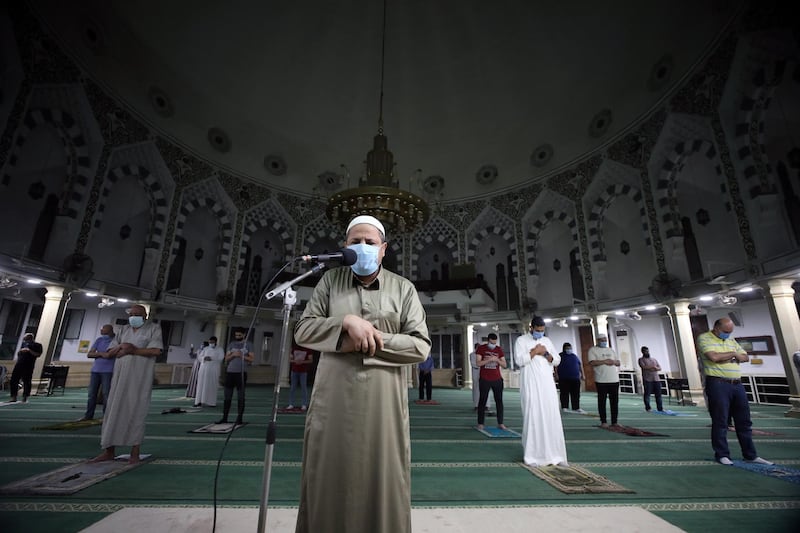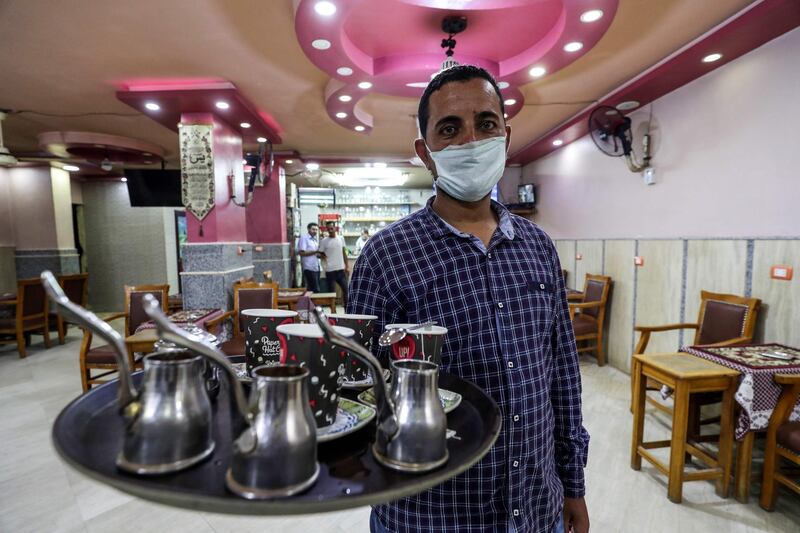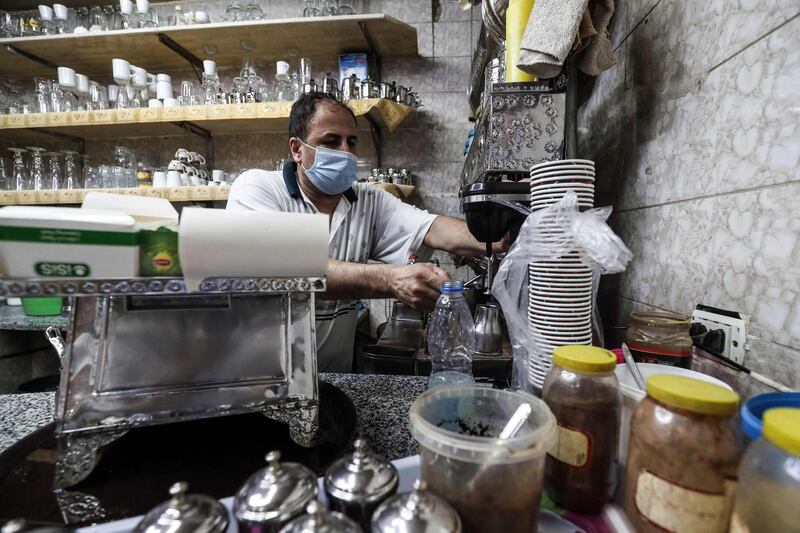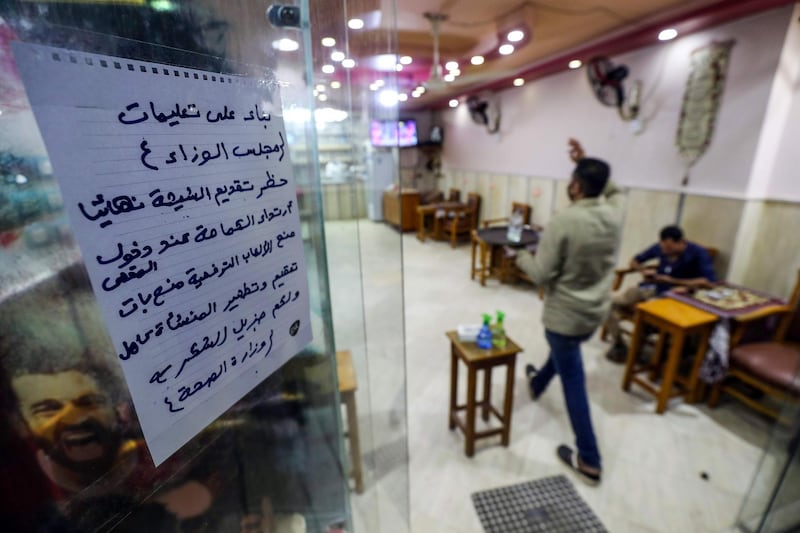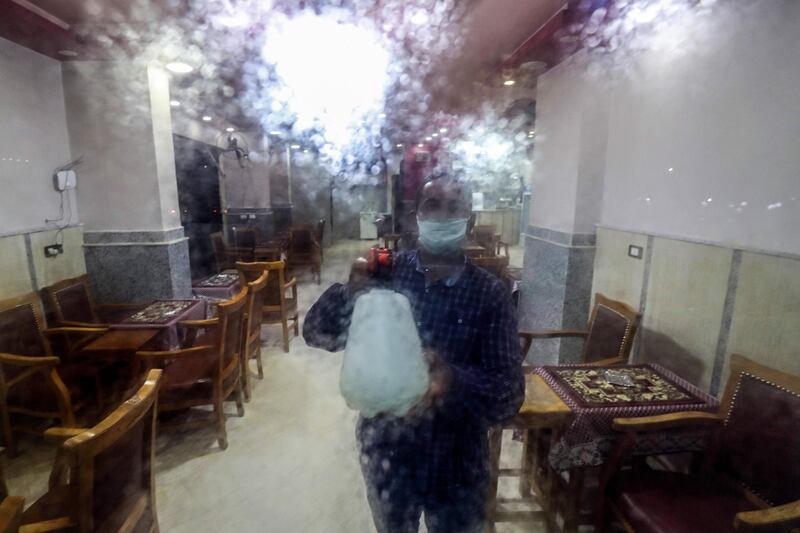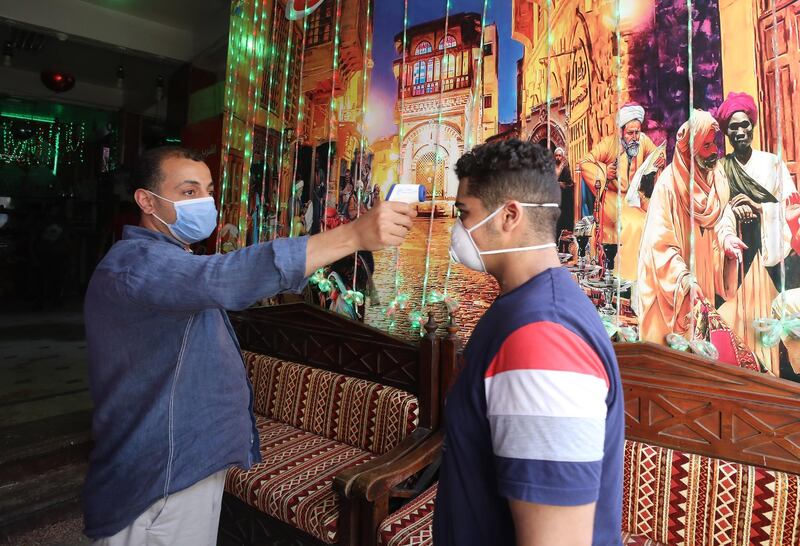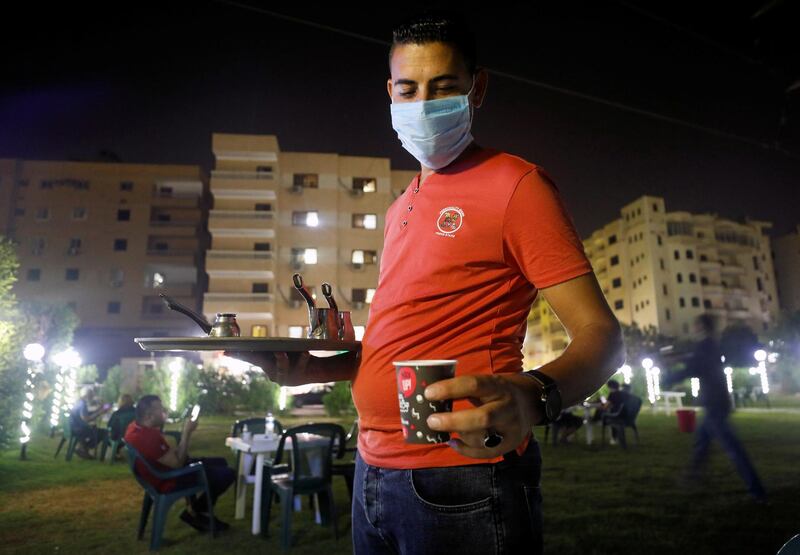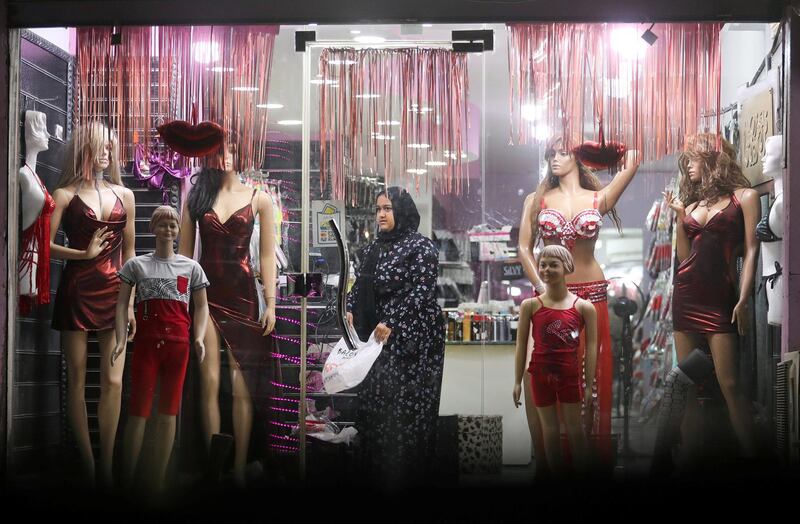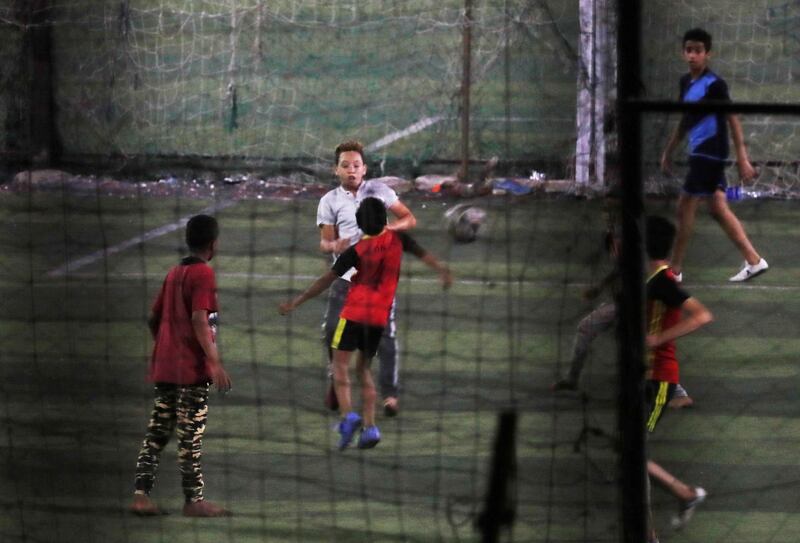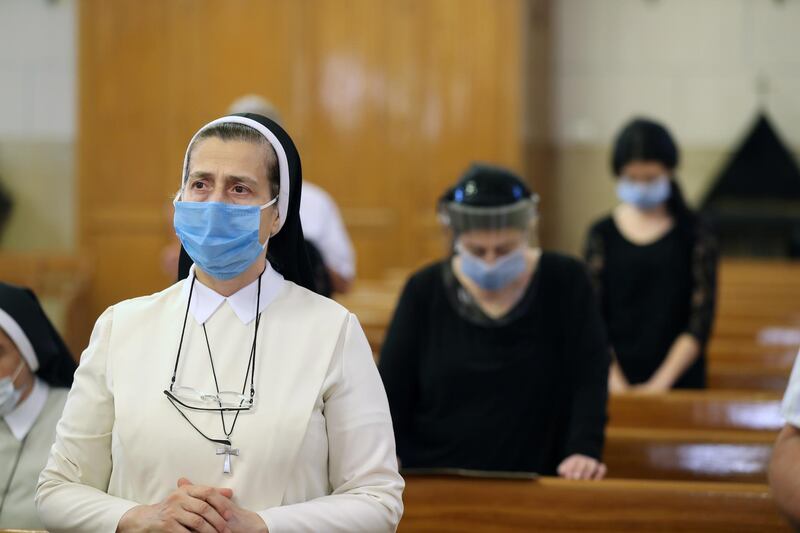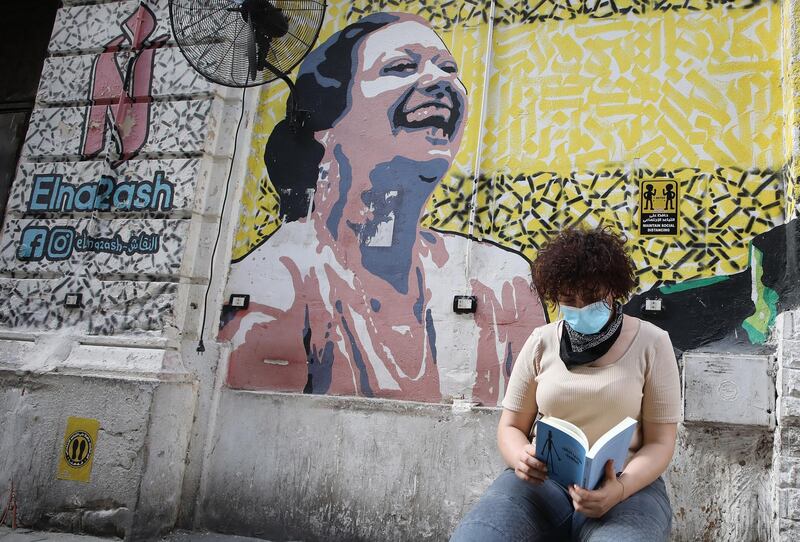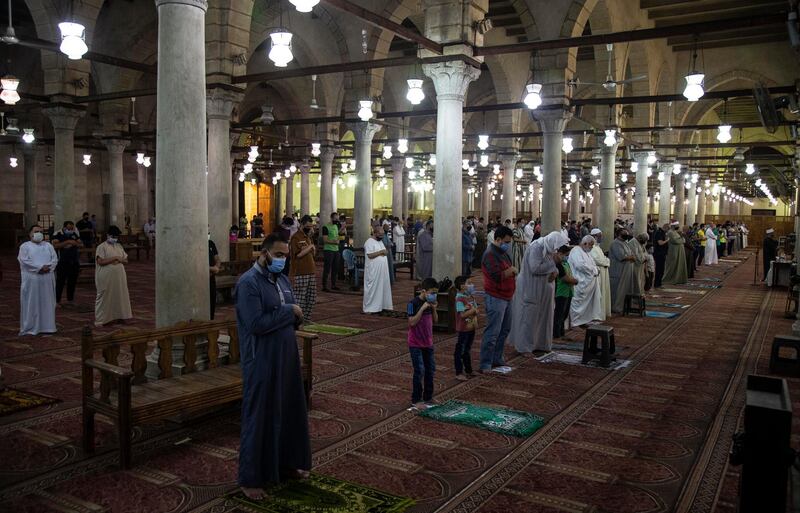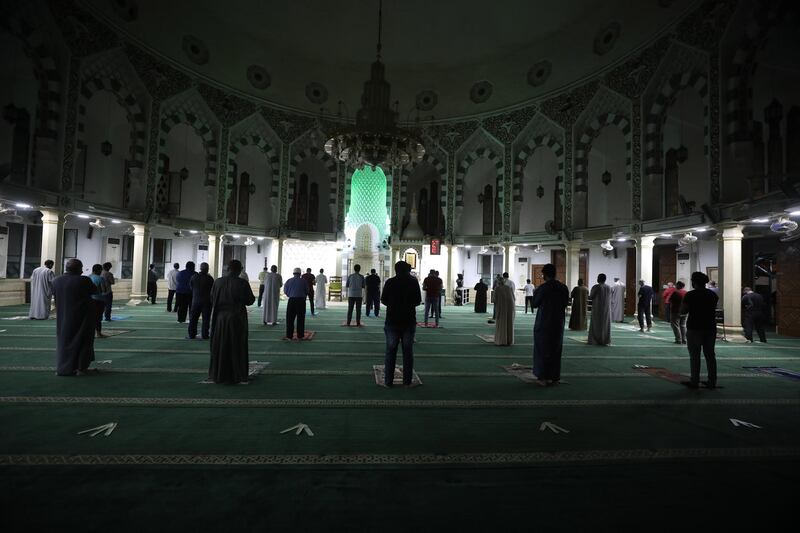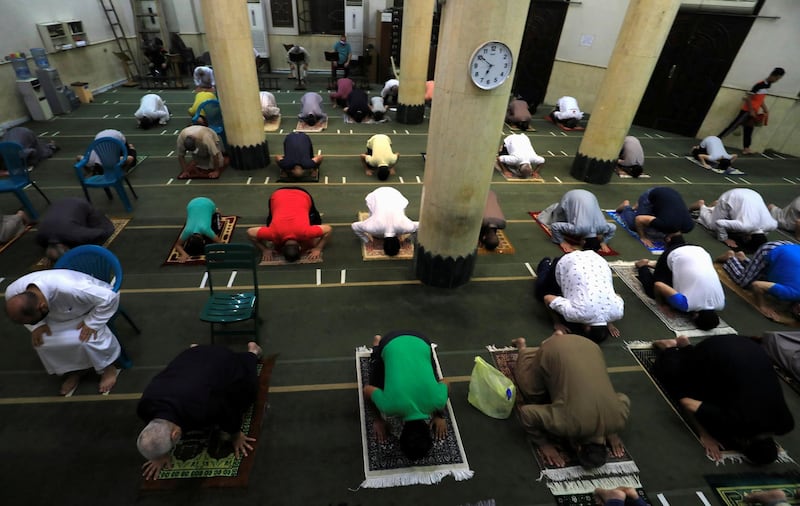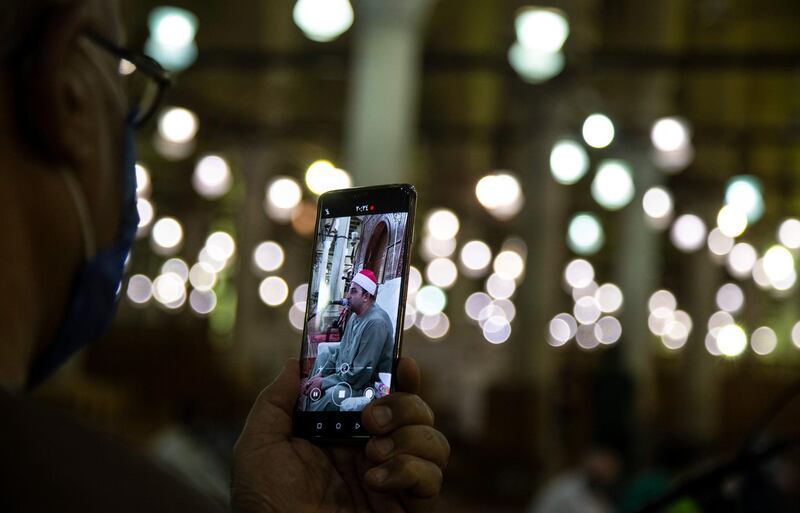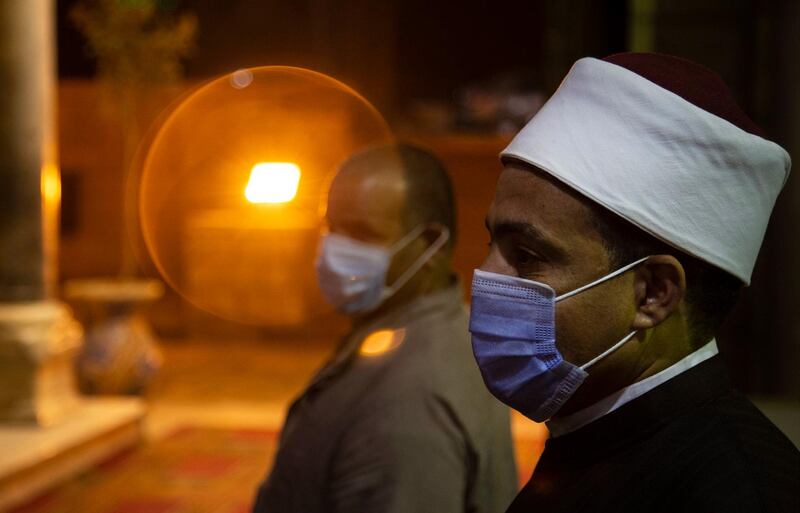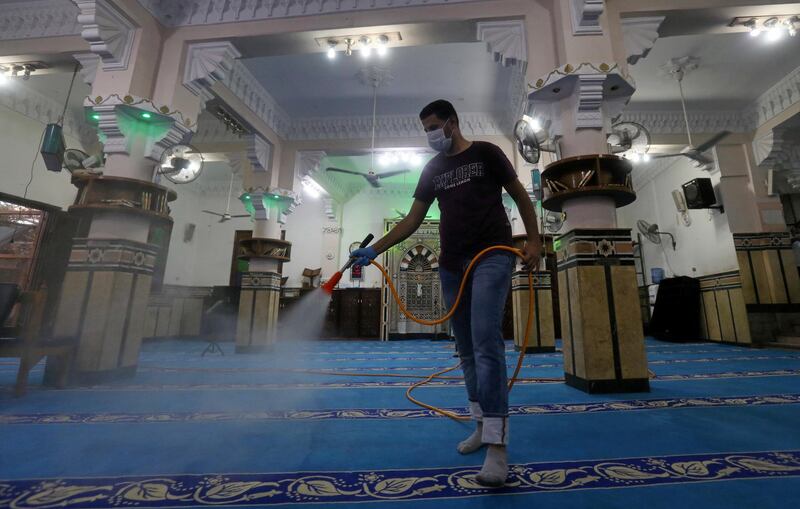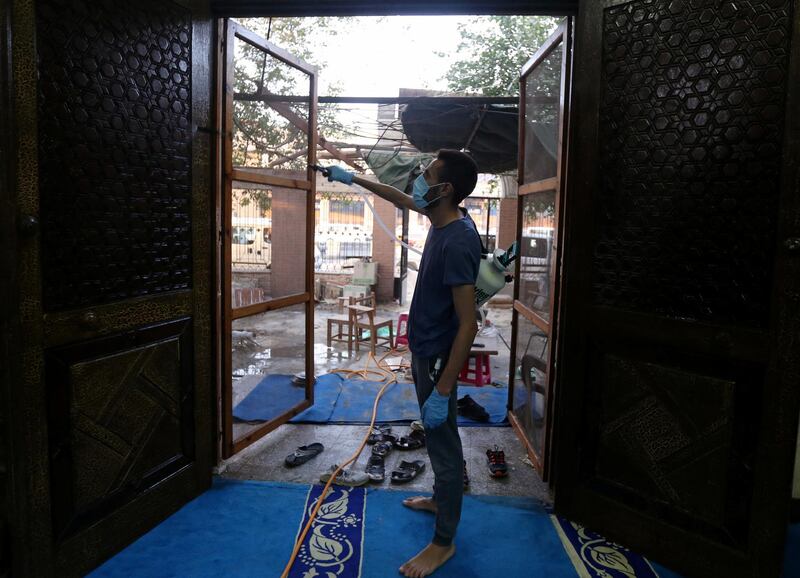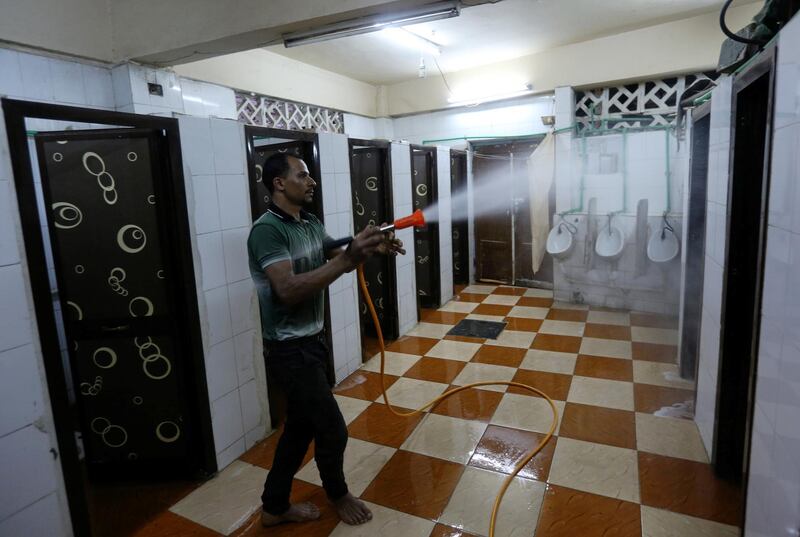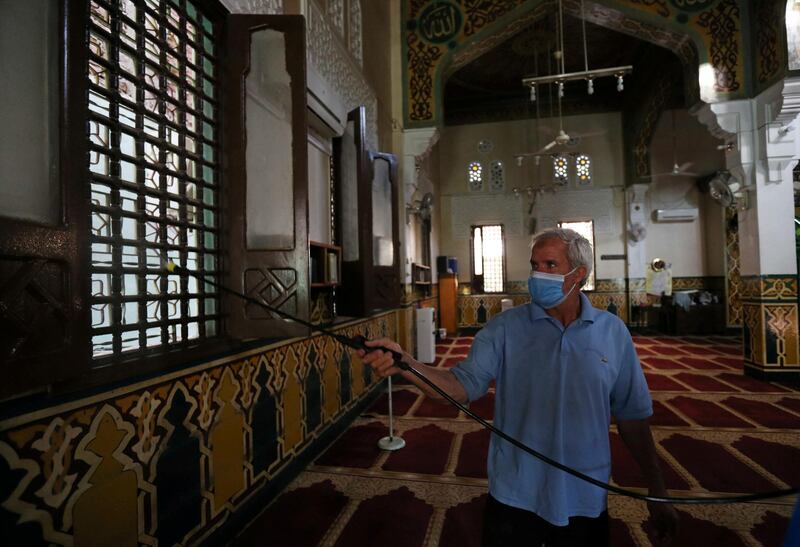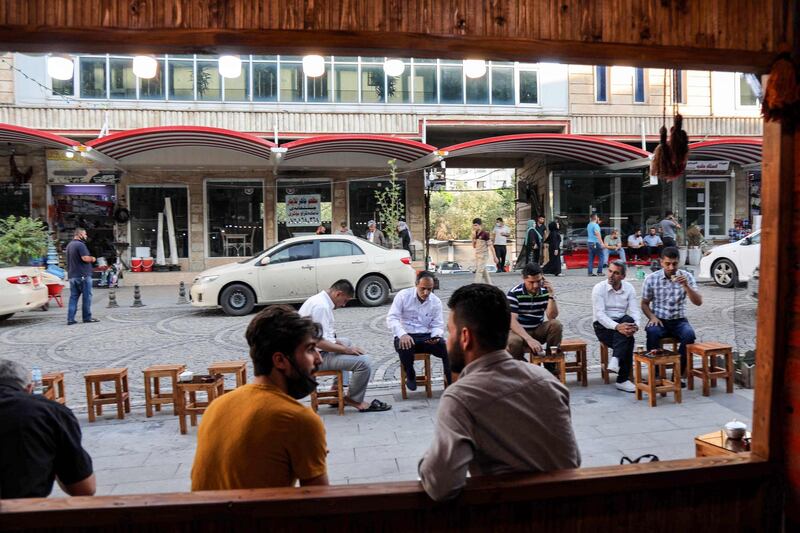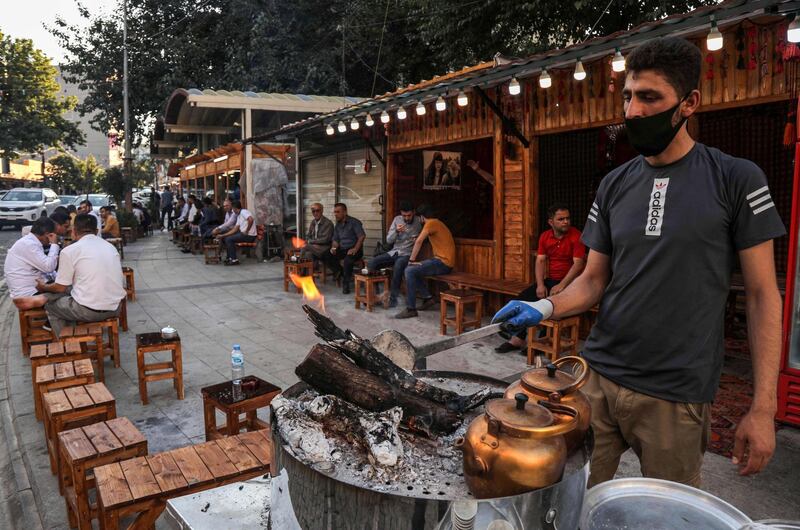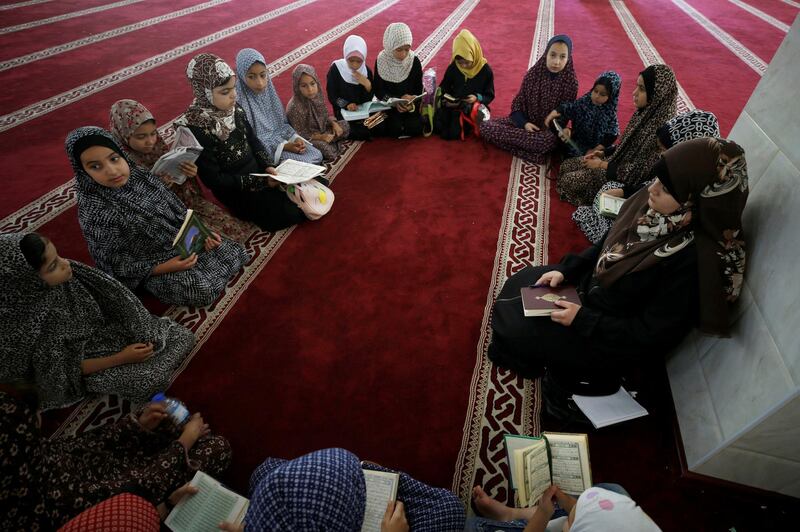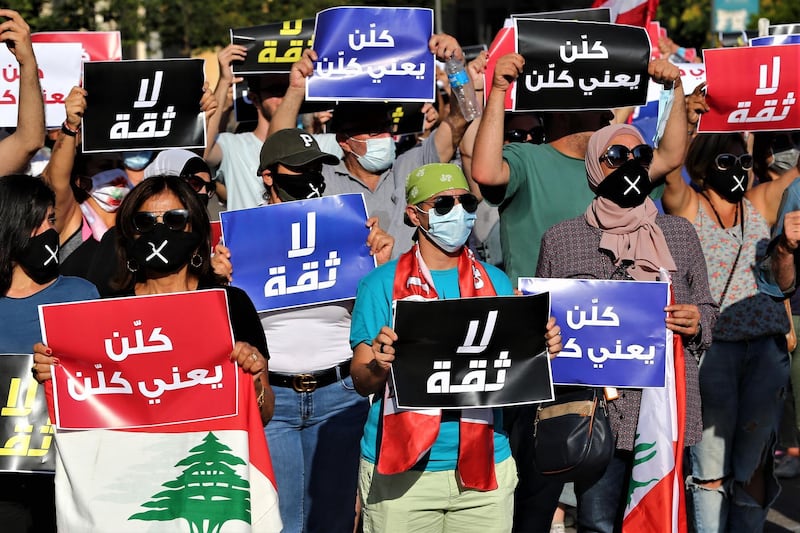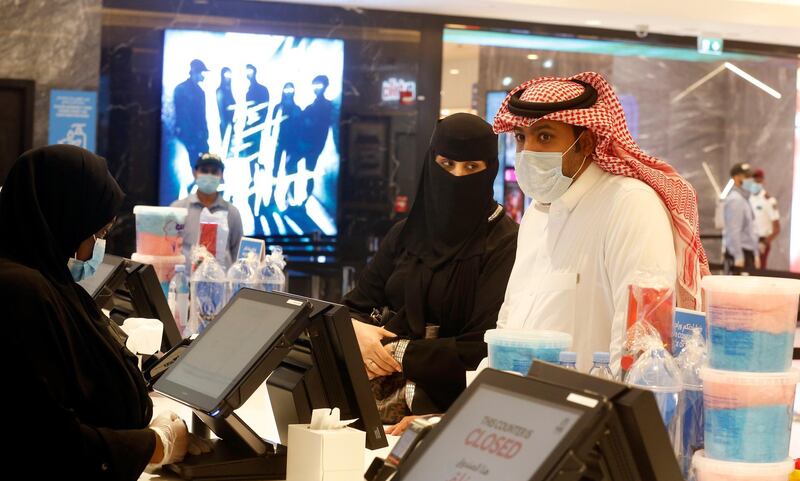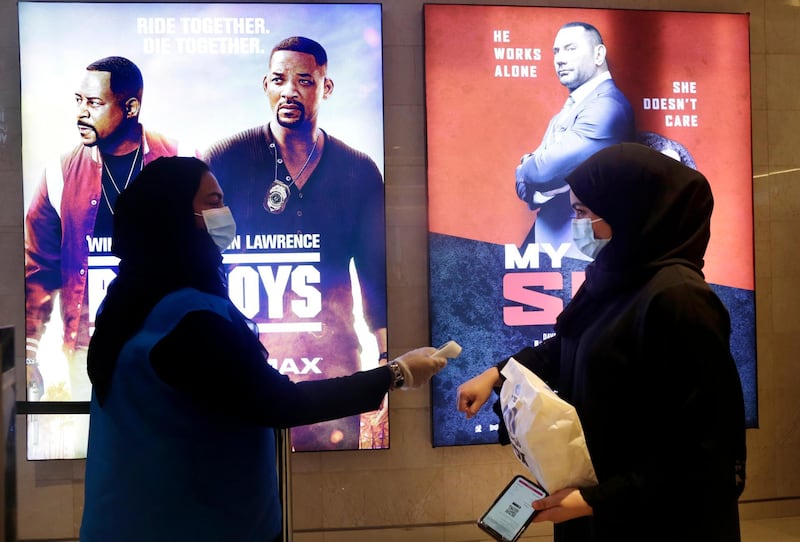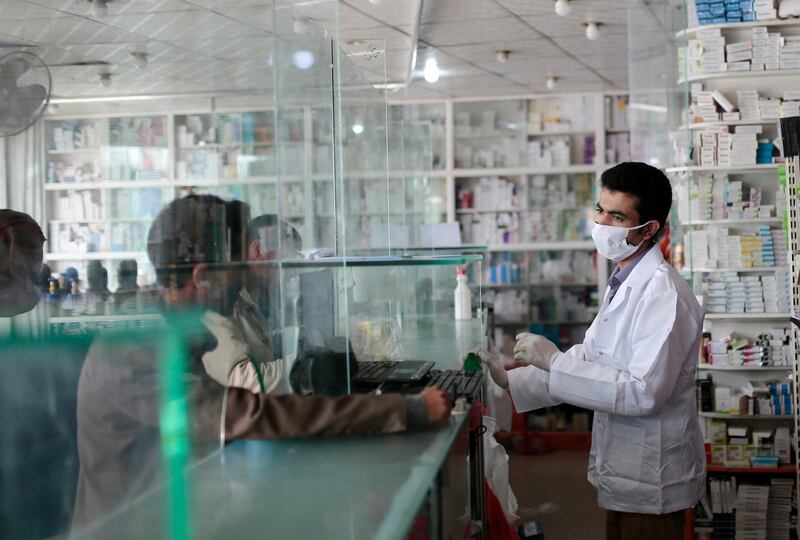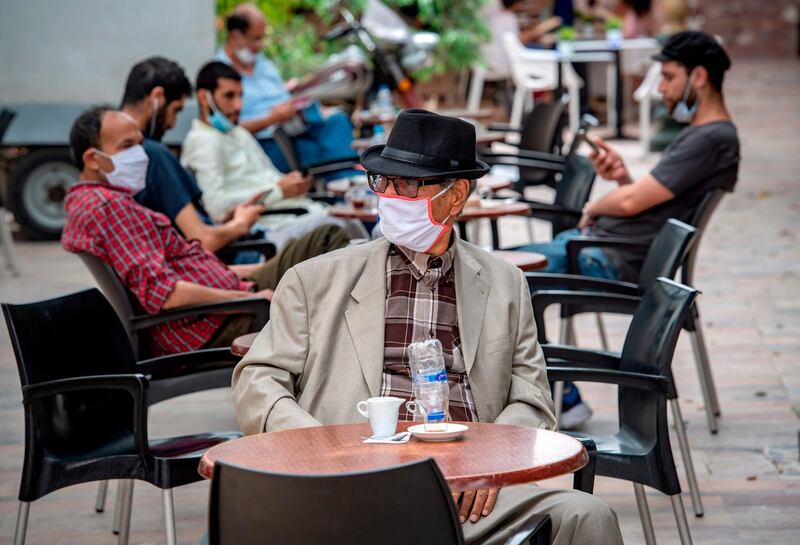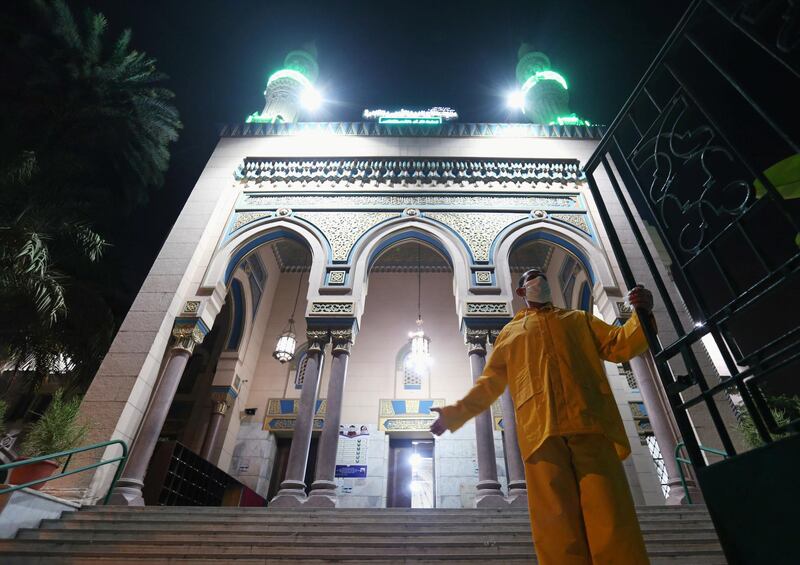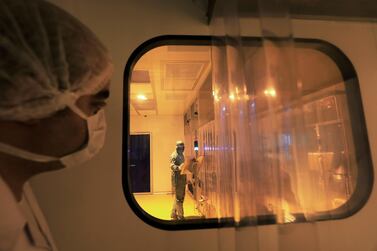The suburban Cairo mosque was full soon after the call for the noon prayers rang out on Saturday, forcing some worshippers to pray on the plaza or the lawn outside. But that was not because their numbers were more than the opulent mosque could ordinarily hold; social distancing meant that each one required more space.
In times of grave crisis, such as the deadly Covid-19 pandemic that has menaced Egypt for the past five months, religious practices ordinarily observed are sometimes shelved in good faith. The oft repeated Quranic verse and saying of the Prophet Mohammed that urges Muslims to stand shoulder-to-shoulder during war and prayers, like a wall whose bricks are closely cemented together, has become somewhat perilous to apply.
The temporary suspension of embracing that command was cited by the imam as a sign of Islam’s greatness.
“It was a very difficult time for all of us, but we are back and we offer our thanks to Allah,” said the imam, whose call for the prayers did not include “pray at home”, the phrase inserted when mosques were closed in March.
“Contrary to what many believe, our religion is very flexible,” said the young imam after he led up to 100 men in prayer at a mosque that could easily accommodate 500 to 600. “We have missed the houses of God and we are back now. It’s a blessing for which we are filled with gratitude and we should try and keep it by observing rules,” he told worshippers who showed up wearing blue surgical masks and carrying their own prayer rugs as part of precautions against the coronavirus.
Egypt on Saturday reopened mosques for worshippers for the first time since it ordered them shuttered three months ago, ending one of the most debated and emotionally charged measures to contain the spread of Covid-19.
_______________
Coronavirus in the region
_______________
Ironically, the decision to reopen the mosques along with churches, restaurants, cafes, cinemas and theatres came as the country of 100 million people is gripped by the worst stretch of the pandemic, with new cases of Covid-19 numbering well above 1,000 every day.
As of Friday night, authorities had reported 62,755 cases and 2,620 deaths. Of these, 36,203 cases and 1,565 fatalities – more than half of the total – were recorded this month.
The government maintains that Egyptians must learn to live with Covid-19 as best they can until a vaccine is developed, but they must also adhere to preventive measures such as social distancing, wearing masks in public and adopting hygienic practices like frequent washing of hands.
The aim, argues the government, is to prevent a continuing lockdown from causing an economic meltdown that would wipe out hard-won gains made over years of harsh reforms to overhaul the economy such as removing state subsidies on basic goods and services and introducing new taxes. But the grim numbers of Covid-19 cases and fatalities have led some to question the wisdom of reopening the country now.
Some Egyptians are using social media to warn that it is too soon to return to business as usual, urging their compatriots to stay home if they can, especially in the greater Cairo area, home to some 25 million people and more than half of all fatalities and cases since the coronavirus outbreak began in mid-February.
They also warned against frequenting cafes and restaurants, although authorities have instructed owners to operate at just 25 per cent of capacity, the ratio also applied to cinemas and theatres. A nighttime curfew has been lifted and July 1 will see the reopening of airports and the resumption of international and domestic flights. Public beaches and parks, deemed too dangerous, will remain shut.
Amid the debate about the timing of returning life to normal, the reopening of mosques appears to be the one move that is winning almost universal approval in this overwhelmingly Muslim nation. However, the traditional Friday sermon, like the Sunday liturgies, remain banned.
“I was happy to go back today,” said Sayed Mohammed, a 67-year-old businessman who offered the dawn prayers on Saturday at a downtown Cairo mosque frequented mostly by fundamentalist Salafi Muslims. “Some of the men brought their young children, something that’s only done during Ramadan or the major religious holidays. You could see that everyone was ecstatic,” he said.
Facing possible fines or loss of licence if they flaunt the regulations, most cafes in Cairo restricted seating to pavements outside their establishments and diligently enforced the limit on patrons and the mandatory use of masks indoors.
”We are back, and that’s really good, but with 25 per cent capacity, sales will be pretty low,” said a waiter at a coffee house belonging to an international chain.
